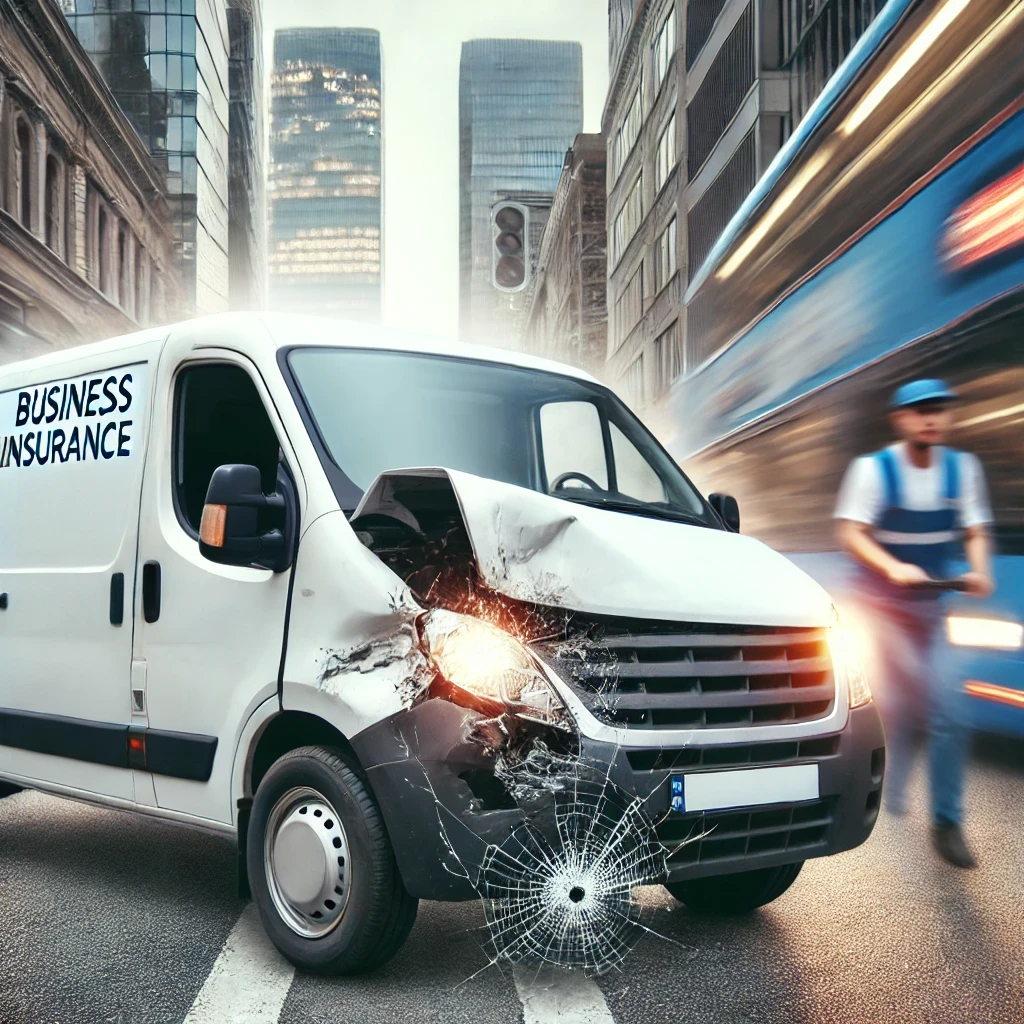
Could a Single Accident Put Your Business at Risk?
One of your employees is making a routine delivery in a company vehicle when they get into an accident. You assume your personal auto insurance will cover the damages—until the claim is denied. Now, you’re left with costly repairs, potential lawsuits, and a financial burden that could have been avoided.
This situation is more common than you might think. Many business owners unintentionally misclassify their vehicles, exposing themselves to unnecessary risks. If your company depends on a vehicle for deliveries, client visits, or transporting equipment, commercial auto insurance isn’t just a recommendation—it’s essential protection.
What Is Commercial Auto Insurance, and Why Does Your Business Need It?
Commercial auto insurance provides coverage for vehicles used for business activities. Unlike personal auto insurance, which only covers private use, a commercial policy accounts for the added risks of business operations—such as transporting goods, carrying work equipment, and driving employees.
Without the right coverage, an accident could leave your business financially exposed. Even worse, if your vehicle is misclassified under a personal policy, your insurer may deny the claim entirely, making you responsible for all expenses.
The Costly Mistake of Misclassifying a Business Vehicle
It may seem like a small oversight, but failing to classify your vehicle correctly can lead to serious financial and legal problems. Here’s what’s at stake:
1. Claim Denials & Expensive Out-of-Pocket Costs
Most personal auto policies specifically exclude business-related activities. If an accident occurs while using your vehicle for work, your insurer can reject the claim—leaving your business to cover all medical bills, vehicle repairs, and legal fees.
2. Risk of Lawsuits & Legal Liability
If an accident involving your business vehicle results in injuries or property damage, the affected party may sue your company. Without commercial auto insurance, your business could be responsible for costly settlements and legal expenses.
3. Voided Insurance Policies
Insurance companies can cancel your policy if they find out your vehicle was misclassified. That means losing current coverage and potentially facing difficulty in obtaining future insurance.
4. Higher Premiums & Policy Rejections
If an insurer discovers that you’ve been using a personal vehicle for business, they may refuse to renew your policy or significantly increase your rates. Correcting your coverage now can prevent long-term financial consequences.
Do You Need Commercial Auto Insurance?
Many business owners assume that since they use their vehicle for both personal and work purposes, they don’t need commercial auto insurance. However, if you use your vehicle for any of the following, a commercial policy is the safest choice:
- Deliveries – Whether you own a bakery, florist shop, or catering business, delivering products or food requires commercial coverage.
- Transporting Equipment – Contractors, landscapers, and service professionals who carry tools or materials need additional protection.
- Driving Employees or Clients – If employees use your vehicle or clients are transported in it, personal insurance won’t be enough.
- Frequent Business Travel – Insurers may require a commercial policy if you regularly drive to job sites, client meetings, or networking events.
What’s Included in a Commercial Auto Policy?
A well-structured commercial auto policy provides comprehensive protection to keep your business secure:
- Liability Coverage – Covers damages if your business vehicle causes injury or property damage.
- Collision Coverage – Pays for your vehicle repairs after an accident, regardless of fault.
- Comprehensive Coverage – Protects against theft, vandalism, and natural disasters.
- Uninsured/Underinsured Motorist Coverage – Helps if your business vehicle is involved in an accident with an underinsured driver.
- Medical Payments Coverage – Covers medical expenses for you and passengers after an accident.
Choosing the Right Commercial Auto Insurance
Finding the right coverage depends on your business’s unique needs. Here’s what to consider:
1. Assess How Your Business Uses the Vehicle
Are you making daily deliveries, driving employees, or hauling equipment? The extent of business use impacts the type of coverage needed.
2. Consider Vehicle Type & Cargo
Larger vehicles or those carrying valuable equipment may need additional coverage. Be sure your insurer understands how your vehicle is used.
3. Balance Coverage Limits & Costs
Higher deductibles lower monthly premiums but increase out-of-pocket expenses in case of a claim. Make sure you choose a balance that fits your budget.
4. Get Expert Guidance
Understanding insurance policies can be overwhelming. Speak with one of our insurance advisors to ensure you’re fully covered.
Protect Your Business—Get the Right Coverage Today
A misclassified vehicle can put your business at risk, from denied claims to financial losses. Don’t wait until an accident happens to find out you’re unprotected.
Request a free commercial auto insurance quote today and safeguard your business for the road ahead.
Frequently Asked Questions
1. How do I know if I need commercial auto insurance?
If you use your vehicle for work-related tasks beyond commuting—such as deliveries, transporting equipment, or driving employees—you likely need commercial auto insurance.
2. Can I add business use to my personal policy instead?
Some insurers offer a business-use endorsement, but it has limitations. If your vehicle is central to your business operations, a commercial policy is the best choice.
3. What determines the cost of commercial auto insurance?
Your premium is influenced by vehicle type, business use, driving history, and coverage limits. Policies often start at a few hundred dollars per year but vary based on risk factors.
4. What happens if I don’t have commercial auto insurance and get into an accident?
Your personal auto policy may deny your claim, leaving you responsible for all costs—including repairs, medical bills, and legal fees.
5. Where can I learn more about business insurance options?
Explore more insurance insights and stay informed about protecting your business.
